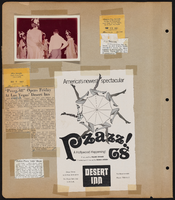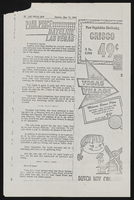Search the Special Collections and Archives Portal
Search Results

Circus Circus midway overlooking slot machines: postcard
Date
Archival Collection
Description
Image
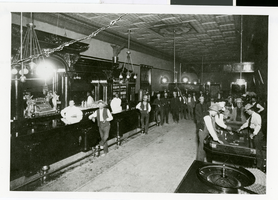
Photograph of the Arizona Club, Las Vegas, circa 1906
Date
Archival Collection
Description
Image
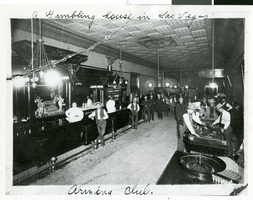
Photograph of the interior of the Arizona Club, Las Vegas, circa 1906
Date
Archival Collection
Description
Image
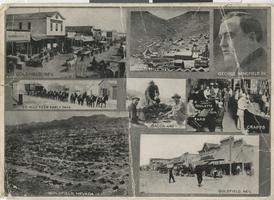
Photograph of scenes from Goldfield, Nevada, 1906
Date
Archival Collection
Description
Image
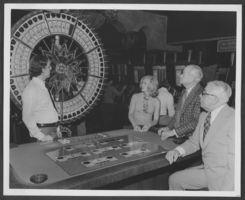
Photograph of gamblers at a wheel of fortune game in the Aladdin Hotel, Las Vegas, Nevada, circa early 1970s
Date
Archival Collection
Description
Image
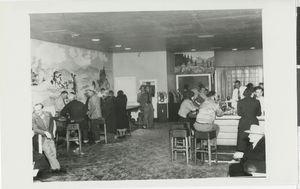
Photograph of people inside the Town Hall Casino, Tonopah (Nev.), 1940-1960
Date
Archival Collection
Description
Image

Transcript of interview with Dr. Harrie Fox Hess by Scot Siegel, February 26, 1979
Date
Archival Collection
Description
On February 26th, 1979, Scot Siegel interviewed his psychology professor, Dr. Harrie Hess (born March 1, 1929 in Hammond, Indiana) in his office at the University of Nevada, Las Vegas. Dr. Hess discusses his family’s reason for moving to Nevada and how he felt as a young adult moving to Las Vegas. The two go on to talk about Dr. Hess’ contributions to Nevada through his work as a psychologist, and briefly mentions the first law to be drafted on psychology certification in Nevada. Dr. Hess then describes the Wild Cat Lair as an important site of social recreation for early Las Vegas youth. The interview concludes with his memory of Boulder (Hoover) Dam and how he believes that workers from the Great Depression paved the way for industrial success in gambling due to their employment on the Dam.
Text
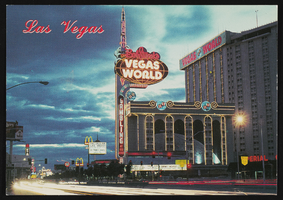
Bob Stupak's Vegas World Hotel and Casino: postcards
Date
Archival Collection
Description
Image

